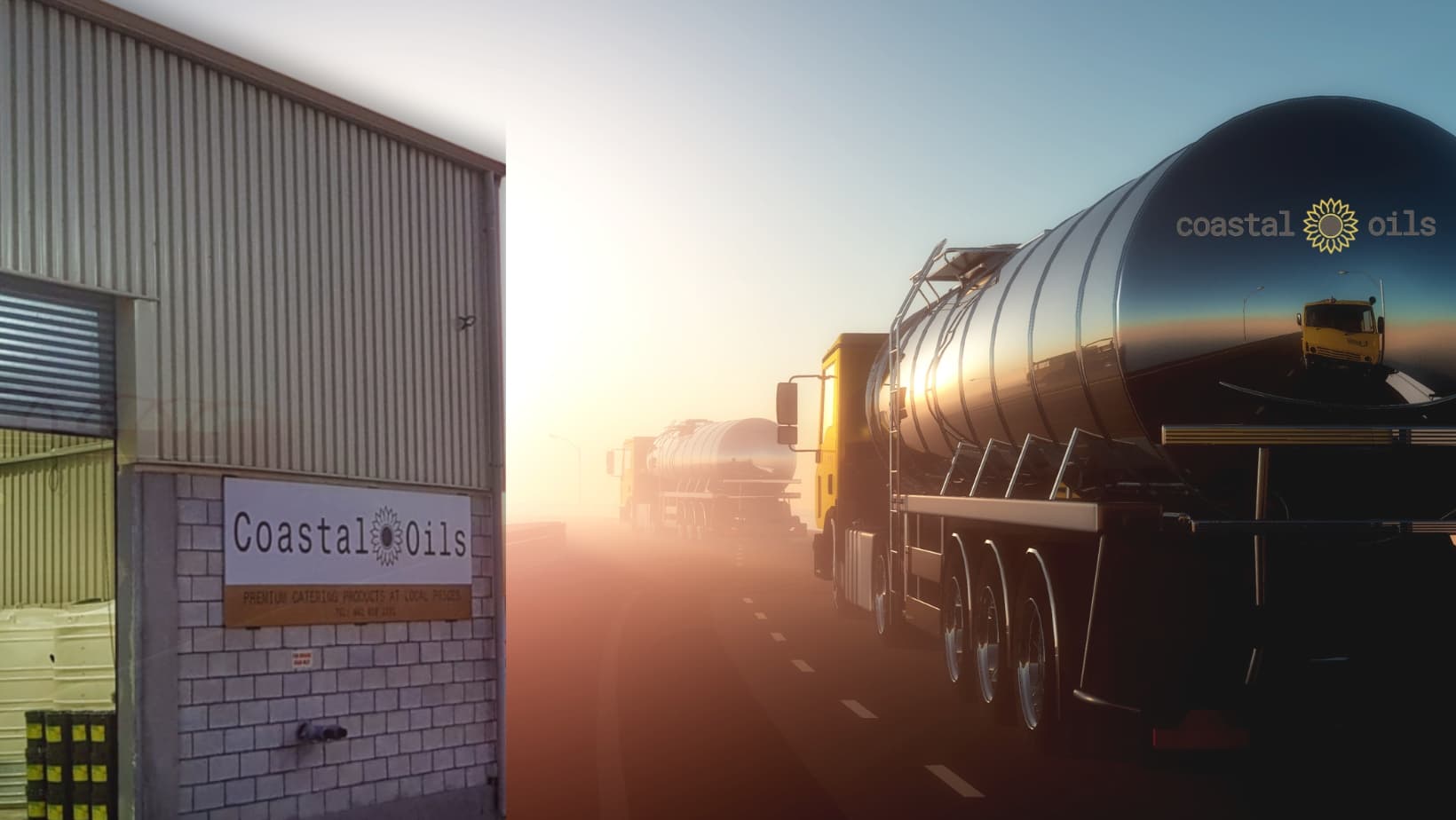
Used Cooking Oil Collection
ISCC Certified Used Cooking Oil Collection Specialists and Premium Supplier of Cooking Oil

WE ARE A ISCC CERTIFIED COMPANY
At Coastal Cooking Oils, we don't just collect used cooking oil; we are committed to creating a greener, more sustainable future. As the proud holders of the prestigious International Sustainability and Carbon Certification (ISCC), we stand tall as a beacon of eco-responsibility and ethical business practices.
Coastal Cooking Oils is more than just a used cooking oil collection center; we are environmental stewards. We actively contribute to the reduction of carbon footprints by repurposing used cooking oil into valuable resources.
Our operations undergo rigorous scrutiny to ensure that they meet and exceed the stringent environmental criteria set by the International Sustainability and Carbon Certification (ISCC). This means every aspect of our used cooking oil collection and recycling process is meticulously designed to minimize environmental impact.
Join us in making a real difference. By recycling your used cooking oil with us, you contribute to the reduction of greenhouse gas emissions and the conservation of natural resources. Be part of the positive change!
CUSTOM UCO SOLUTIONS FOR BUSINESSES
We understand the importance of convenience in waste management. Coastal Cooking Oils offers hassle-free collection services, ensuring that your used cooking oil is picked up promptly and efficiently. Our team is dedicated to making the process as seamless as possible for our clients. .

WHAT CAN BE EXPECTED WHEN SIGNING WITH COASTAL COOKING OILS
1. Initial Inquiry
The process begins with the waste oil collector (Coastal Cooking Oils) contacting the business to discuss the collection service. We negotiate terms, including the frequency of pickups, volume of oil generated and any associated costs or payment arrangements.
2. Assessment
We conduct a thorough assessment of the business's requirements. This includes understanding the volume of used cooking oil generated, the types of oil used and any specific preferences or requirements the business may have.
3. Customised Solution
We tailor the collection service to meet the specific needs of the business. This could involve customising the pickup schedule, providing specialised containers or accommodating any unique aspects of the business's operations.
4. Legal Compliance
Ensure that the waste oil collection service complies with National regulations related to the collection, transportation and disposal of used cooking oil. This may involve obtaining necessary permits and certifications.
5. Payment Terms
We discuss the financial aspects of the service, including any associated costs for the business. This may include service fees, transportation costs or revenue-sharing arrangements based on the resale value of the collected oil.
6. Document & Report
We establish a system for documentation and reporting. This includes outlining how the waste oil collection service will provide records of pickups, recycling certificates and any other relevant documentation to the business.
7. Emergency Plan
We develop an emergency response plan in case of spills or other unforeseen incidents during the collection process. This plan should outline procedures for containment, cleanup and reporting.
8. Contract Agreement
We now formalise the agreement between the waste oil collection service and the business through a contractual arrangement. This document should clearly outline the terms and conditions of the service, responsibilities of each party and any legal considerations.
9. Communication
We establish clear communication channels between the waste oil collection service and the business. This ensures that any changes in schedule, procedures or other relevant information can be communicated effectively.

